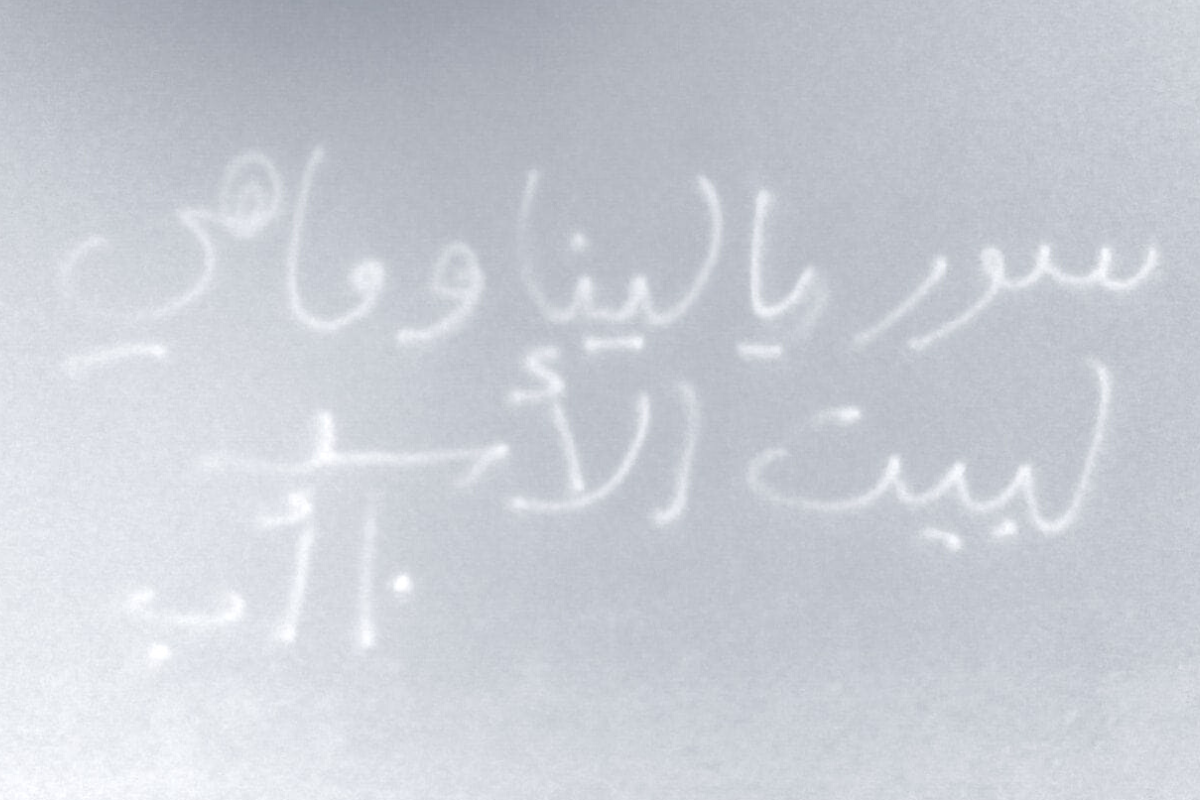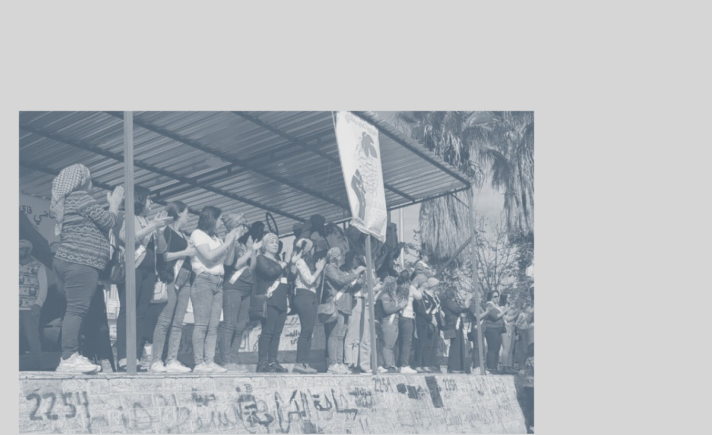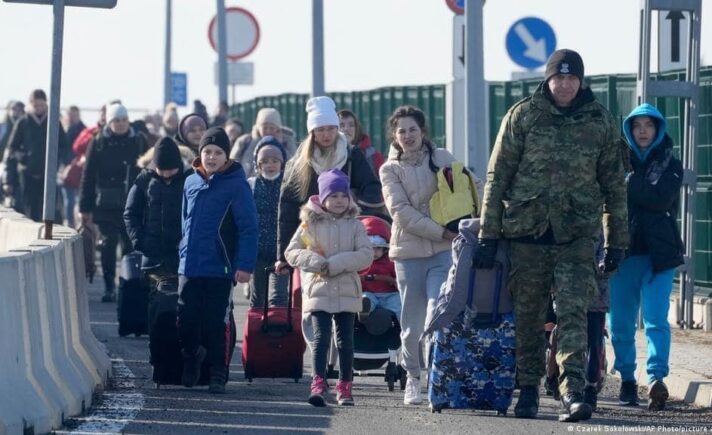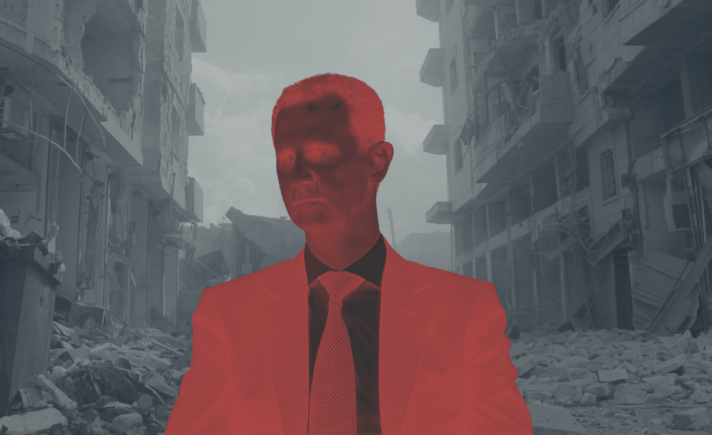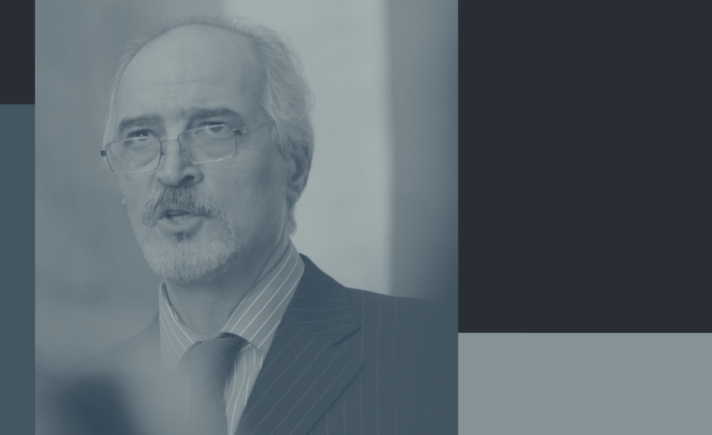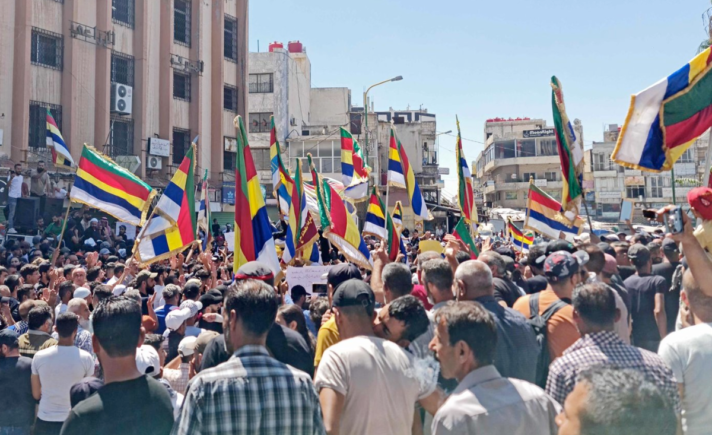On the 5th of August, a statement was issued by a political entity calling itself the “August 10 Movement.” The movement set a deadline for the Syrian regime to announce a timeline for addressing various political demands, and declared that, should they receive no response from the authorities by the 10th of August, they would begin a peaceful movement.
The movement issued their statement against the backdrop of widespread popular discontent caused by the severe deterioration of the Syrian pound’s value, the failure of the Arab normalization project, and the collapse of the economic promises associated with it. The large amount of engagement with the statement on the movement’s Facebook page was just one display of this discontent. However, on the 9th of August, Bashar al-Assad appeared in an interview on Sky News, reiterating his familiar rhetoric and seemingly disregarding people’s concerns. The movement then released a second statement on the same day, announcing the launch of peaceful activities, after which videos and images were posted on the movement’s page depicting leaflet distribution and banners calling for change, all bearing the movement’s name. These peaceful activities were observed not only in Damascus and Aleppo, but also in Hama, As-Suwayda, coastal cities and other regions.
This occurred at a time when it was clear that a new spirit of protest was sweeping through Syrian society, exemplified by passionate public expressions on social media (which were met with arrests). There was also a resurgence of various attempts at political organization: the revival of the Civil Labor Movement through the Syrian Youth Assembly, which issued a statement on the 12th of August, followed by the launch of the Syrian Popular Movement page from Tartus and Latakia, and the announcement of the establishment of the Strike and Protest Organizing Committee (Qawem) on the 25th of August.
Simultaneously, on the 16th of August, the Syrian regime increased pensions by 100%. This coincided, however, with the removal of fuel subsidies, resulting in a fresh wave of currency devaluation, a decline in Syrians’ purchasing power, and waves of public anger that peaked with the transformation of the As-Suwayda movement – which has been evolving in various forms over the past few years – into an all-out uprising against the regime starting on the 20th of August.
Throughout this period, the August 10 Movement released multiple statements and shared various videos and images. They also began to shape their political discourse, which is becoming more distinct day by day. In this interview, I speak with Amir Nasser, the movement’s official spokesman, about the movement’s goals, discourse, and its vision for the current moment and Syria’s future.
Amir Nasser uses a pseudonym and a secure means of communication to conceal his identity, even from his conversation partners. He speaks from an undisclosed location on behalf of a Syrian underground movement advocating for political change through peaceful means, in a country where tens of thousands are armed, hundreds are detained, and where various militias, armed groups, and foreign armies are active.
What follows is our conversation.
On the 13th of August, you posted a brief message on your page which stated: “We will persist in what we have initiated. Our steps may be small, but they are resolute until the very end.” Who were you addressing at that moment when you emphasized the perseverance of your actions, despite their modest scale?
We were addressing those who were impatient, who expected the movement to lead major street demonstrations within days of its inception. We were also addressing those who deemed our minor actions, such as distributing leaflets, as insignificant. We were also directing this message to the regime supporters who ridiculed our movement. Our aim was to convey that confronting authorities and working toward political change require patience and long-term commitment. We wanted to emphasize that rash actions that lead to the loss of young men and women at the hands of the authorities in regions tightly controlled by Syrian security, such as the coast, central Syria, and Damascus, do not offer viable solutions. Instead, solutions come through diligent efforts grounded in understanding the reality around us.
Your second statement garnered so much attention that it gave the impression of a substantial movement in the making. Do you believe that this may have caused frustration among supporters of your political agenda? What would you say to those who were disappointed after such high expectations?
We would like to clarify that the movement has encountered immense challenges. It is a newly emerging movement which aims to contribute to change, but does not claim to effect swift transformation. We promised to begin a non-violent movement in various regions of the country, and we fulfilled that promise to demonstrate that it is possible to organize, work and advocate for change. We would like to reiterate that our actions are ongoing, but we encourage all those seeking change to actively participate, rather than passively waiting for change to happen. There are numerous ways to voice dissent against authority, including engagement in political organization, meetings, discussions, and various forms of non-violent protest that individuals or groups can undertake according to their circumstances, location, and the nature of authority in their area, all while ensuring their safety as much as possible. This includes protesting against the Syrian regime and all other de facto authorities in the country. Neither the August 10 Movement nor any other entity can single-handedly overturn the existing reality; it necessitates a widespread, national movement in which we aspire to make a meaningful contribution.
Your initial statement garnered widespread support and enthusiasm among Syrians who espoused a reformist or protest-oriented discourse primarily about addressing basic living demands. However, when discussions about political transition began, and posts on your page started to criticize Bashar al-Assad, many withdrew their support. Comments began to surface accusing you of altering your principles. How do you interpret and handle this?
In the beginning, our aim was to present straightforward demands. We did not seek anything beyond the announcement of specific timelines for fulfilling demands that no-one in Syria could reasonably dispute. Our intention was to demonstrate to as many Syrians as possible that the authorities were unresponsive even to the simplest demands. It’s normal for some individuals to have withdrawn their support for various reasons, perhaps because they believe in the potential for improving living conditions without political change, or because they fear the repercussions of raising the stakes and challenging those in power. Our aim was to prompt these individuals to engage in political discourse. Our movement began in a context of political stagnation and turmoil, in an environment where Syrian political actors had been non-existent for an extended period of time. We sought to commence a form of political activism within areas controlled by the Syrian regime, laying the groundwork for a new Syrian political discourse.
Were you concerned that by rapidly escalating your demands, you may have lost supporters who preferred a more restrained discourse and were willing to identify with demands that did not directly challenge those in power or the existing political system?
We did not perceive it as a loss, primarily because we are confronting an authority that responds only to the language of military force and brutality. In our view, a political discourse that does not address the root of the problem or name those responsible is meaningless. However, we did not perceive this as a loss because our objective was not to lead an immediate transformation in Syria. Instead, we aimed to contribute to the resurgence of political activism on the streets of Syria within regime-controlled areas. We sought to reassert the importance of political organization, which we believe is the sole avenue for meaningful change. Days after the launch of our movement, the Syrian Popular Movement was established in Tartus and Latakia. From its discourse, it seems to represent former regime supporters who now desire change through a discourse less confrontational with the authorities and more removed from the 2011 revolution. In this way, the segment of the population that recognized the need for change but disagreed with our approach and discourse has begun to organize itself, acknowledging the importance of political organization. This, in our view, is what truly matters.
Your Facebook page indicates that your popularity has also declined among a portion of the audience who supported the 2011 revolution. Some put this down to a “weakness” in your movement or rhetoric. How would you respond to this?
Firstly, we would like to note that the decline in Facebook followers can partly be attributed to limitations imposed on our page, as it seems that Facebook has not been particularly supportive of the Syrian movement. However, regardless of the decline, it’s possible that your observation holds true regarding the movement’s popularity among the masses of the 2011 revolution. I would like to reiterate our perspective that we align with the need for an organized and deliberate movement, one that is not rushed – whether it’s our own movement or any other group seeking change. This approach is necessary to ensure that the movement is suitable for the Syrian region and its unique circumstances. What can be achieved in As-Suwayda, as we can see from its significant uprising, may not be achievable in other regions. We also believe there are two prevailing discourses in the country: the regime’s discourse and the traditional opposition discourse. We believe that both need to be transcended, that new approaches should be adopted, learning from past mistakes and aligning with the current circumstances of a Syria which is vastly different from what it was in 2011. This is why, for instance, we issued a statement rejecting calls for demonstrations on Fridays in areas under the tight security grip of the regime. We advocate for diverse and cumulative methods of resistance.
Regarding your statement rejecting Friday demonstrations, it is apparent from your rhetoric on numerous occasions that you are distancing yourself from the 2011 revolution. You often speak of a “story you do not want to repeat” and “past mistakes”. How do you view the 2011 revolution and its relation to your movement?
Most of the young men and women in our movement today are in their twenties. They were children during the 2011 revolution, and have faced challenges and lived under conditions vastly different from those experienced by the revolutionaries of 2011. As such, many of them possess a different perspective from the older generation. Furthermore, we have members in the movement who participated in the 2011 demonstrations and consider themselves part of that legacy. There is a convergence within the movement between two generations aspiring for political change in Syria. In this sense, we are not separate from the 2011 revolution and its significant experiences. During its initial peaceful months, the 2011 revolution was embraced by many members of the movement. We aim to revive that stage with its distinctive aspects, experiences, and struggles, but we also strive to learn from past mistakes to prevent a recurrence of the issues that led to foreign-backed opposition and Islamic factions exerting control over the voice and direction of the opposition and the revolution.
Do you believe that maintaining a commitment to non-violence is sufficient to prevent a recurrence of past mistakes?
We believe that violence is the terrain of the authorities, while non-violence is ours. However, non-violence alone is not enough to ensure mistakes are not repeated – we also need organized mass political action, informed by past experiences.
Currently, as a movement, we are in the phase of building organization and refining our discourse. Our efforts focus on two primary areas: promoting a culture of organized political work within Syria, and advocating for the culture of non-violent resistance. We are mindful of the vertical divisions in society, whether at the sectarian level or due to the inflexibility of political discourses and stances among various factions. We strive to bridge these divisions and establish a fresh discourse, all while working to reopen the political space in the country, a task we believe we have accomplished or, at the very least, significantly contributed to.
Speaking of the movement’s establishment, and within the limits of what you can say while safeguarding the safety of its members: When did the discussions leading to the creation of the August 10 Movement begin? Can you give us insights into the circumstances and methods behind the formation and organization of the movement?
Conversations and meetings that directly addressed the need to launch the movement and shape its vision began roughly one month before our first statement was issued, but communication between members started long before this. We constitute a group of Syrians spread across all regions of the country. We have been convening and engaging in dialogues through various channels for a long time. We collectively deliberate upon our circumstances and the nation’s situation. While we share a common aspiration for political change, we find that the existing discourses fail to adequately represent us. This holds true for groups with proximity to the regime, which criticize it within limited boundaries that do not address the core issue (the regime itself), and for the traditional opposition and remaining political structures that emerged from the 2011 revolution. Over time, this network has gradually expanded and matured, leading us to the current moment when we deemed the conditions right to announce a new political movement within Syria. We maintain a presence in all parts of the country, within various areas of control, and we strive to establish communication with all parties interested in change across the country. We employ the safest available means for communication and meetings.
What about the Syrian diaspora? Does your movement have a presence abroad?
We believe that all Syrians share a common interest in facilitating comprehensive political and societal dialogues, and we find that distinguishing between those inside and outside the country is not beneficial for Syrians. However, our primary political activities are centered within Syria, and the core strength of our movement lies here. Our political discourse is developed domestically, considering different regions’ diverse circumstances. Nonetheless, we do maintain contacts, friendships, alliances and solidarity with Syrian individuals abroad. We believe that the contribution of the Syrian diaspora is essential in terms of supporting the movement from afar, providing media coverage, sharing organizational and political expertise, and participating in discussions concerning Syria’s future and the path to achieving political change.
You have mentioned on the movement’s page the importance of implementing Resolution 2254 as a means to achieve the desired political change. Do you see a realistic possibility of implementing this resolution, and if so, how do you envision it?
While Resolution 2254 may not represent the optimal path for political transition in Syria, it remains the only internationally proposed solution accepted by influential global powers. It is the sole theoretically possible avenue and the only card in the hands of Syrians, as it carries international acknowledgment of the imperative need for political change in Syria, with the initiation of a transitional governing body endowed with full executive authority.
It is worth noting that the sequence of events which took place, namely, establishing a committee for drafting a new constitution before forming the transitional body, has placed the cart before the horse, so to speak. There is also an ongoing disagreement over the interpretation of the resolution, with the regime and its allies insisting that the transitional governing body implies a national unity government. Nevertheless, Resolution 2254 remains the only document suitable for political discussion.
Both Resolution 2254 and the Geneva Statement that preceded it are documents that outline steps and stages toward a solution in the country. We believe it is imperative to introduce them for debate among Syrians today. For instance, they mention the possibility of impartial parliamentary elections under the United Nations’ auspices at a certain stage. Could this be a viable starting point for serious public discourse, particularly given the regime’s reluctance to discuss the transitional governing body and the challenges encountered by the Constitutional Committee?
What holds significance, in our view, is the initiation of broad political dialogues within Syrian society regarding potential solutions. Within our movement, for example, the goal is to bring about regime change in Syria. However, our objectives extend beyond merely the removal of Bashar al-Assad from power, as we consider the current presidential position with its extensive powers to be a significant problem. The prevailing direction within the movement is increasingly leaning towards advocating for a parliamentary system as an alternative to the existing presidential structure, with a focus on transforming Syria into a parliamentary republic. Achieving these goals necessitates extensive discussions within Syrian society, which we aspire to contribute to.
However, if the authorities in Damascus do not respond to these proposals, they will remain as mere theoretical suggestions and might meet the same fate as the Constitution Drafting Committee. Do you have any expectations in this regard? Or, to rephrase the question: What options are available for Syria and its people if the authorities keep rejecting the implementation of Resolution 2254, irrespective of the interpretation of the resolution and the starting point for its implementation?
We don’t hold any expectations that the regime, in its current form, will respond to any proposals for change. Our faith lies in the Syrian people and their determination to bring about change through political activism and organization. Waiting for an external solution, which may or may not materialize and could potentially lead to further turmoil rather than improvements, serves no purpose. We place our faith instead in the Syrian people’s quest for change, as demonstrated by movements like the one in As-Suwayda, which is championing a comprehensive grassroots national discourse. We believe in a return to organized and diligent political action to cultivate a new Syrian political entity. This entity could unveil new possibilities and horizons currently beyond our knowledge.
Today, we see no alternative but to gradually increase our efforts in response to the current situation. The authorities still possess the means to brutalize and oppress. In 2011, there were inspiring demonstrations involving hundreds of thousands of people, but they did not succeed in effecting change in the face of the regime’s formidable apparatus, so we now require broader participation in the struggle to achieve change. We must also consider that those who rose up in 2011 paid a heavy price and faced extensive violence. Therefore, it is unrealistic to expect them to bear the sole burden of a new protest movement leading to change. To be explicit: we need new generations who did not experience the 2011 revolution to become involved in political activism and the pursuit of change. We also require new segments and groups which were previously neutral or supportive of the regime to engage in political activism and the struggle for change. Specifically, we are referring to groups like the Alawite community, and the urban populations in central Damascus and other major cities across the country.
In conclusion, do you have a pre-established roadmap for the gradual, non-violent escalation that the movement intends to undertake in the upcoming phase? Or will this depend on the evolving situation and developments on the ground?
We do have future plans for escalating non-violent resistance, and these will be communicated on our platform. However, our foremost concern at this moment is to safeguard the safety of the members and supporters of the movement, as well as all non-violent activists in the country, particularly given the recent tightening of security measures by the regime in areas under its control. Our objective is to progressively escalate non-violent resistance across all fronts, involving diverse groups, whether they adhere to the movement’s discourse or not. This includes those advocating for radical political change through political slogans, as well as those focused on labor and union-based struggles. Whether they are opposing the Syrian regime or other ruling authorities, we aim for a broader spectrum of participation, reflecting the realities of the situation. Additionally, we envision new possibilities, most notably the transition to a democratic system in Syria through a non-violent peaceful revolution.


